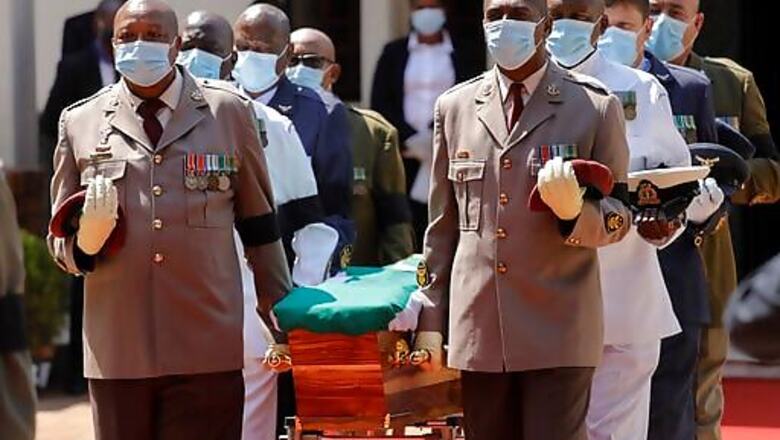
views
JOHANNESBURG: South African gathered Thursday to pay tribute to lawyer George Bizos, who represented anti-apartheid leaders including Nelson Mandela in their legal battles against the government during racist white rule.
Bizos died earlier this month at the age of 92 after a lengthy career fighting injustices in his adopted country. He was credited with helping Mandela avoid the death penalty at his 1964 treason trial and served as his personal attorney for decades.
“Throughout Mandelas daunting decades of imprisonment, he served as a trustworthy political envoy to Oliver Tambo and other highly placed leaders, said Dikgang Moseneke, a former deputy chief justice who described Bizos Thursday as a mentor.
Bizos played a key role in the legal fight to end apartheid, the racist system used to oppress South Africas Black majority for decades. After apartheid ended in 1994, he went on to represent the families of victims of apartheid crimes at the Truth and Reconciliation Commission.
South African President Cyril Ramaphosa said Thursday that Bizos was a titan of the legal profession who displayed a life-long commitment to justice.
Bizos immigrated to South Africa when he was 13, fleeing the Nazi occupation in Greece. As a result, he had a deeply personal experience of being forced away from the land of ones birth and being treated like a second-class citizen,” Ramaphosa said.
There can be no doubt that his personal background influenced and nourished the great well of empathy and solidarity that drove George in the practice of his craft, he added.
Bizos is credited with getting Mandela to add the words if needs be to his speech from the dock in which he said he was prepared to die for his ideals. The addition was seen as an escape clause, avoiding any impression that Mandela was goading the court to impose the death penalty.
During Mandelas years in prison, Bizos helped to look after his family, and he played a key role in negotiations for Mandelas release in 1990.
Bizos also represented the families of slain activists such as Steve Biko, and helped write the laws for the newly democratic country after apartheid ended.
He also pursued other injustices in the country including the killing 44 miners by the police during a mining strike in Marikana in 2012.
Disclaimer: This post has been auto-published from an agency feed without any modifications to the text and has not been reviewed by an editor




















Comments
0 comment